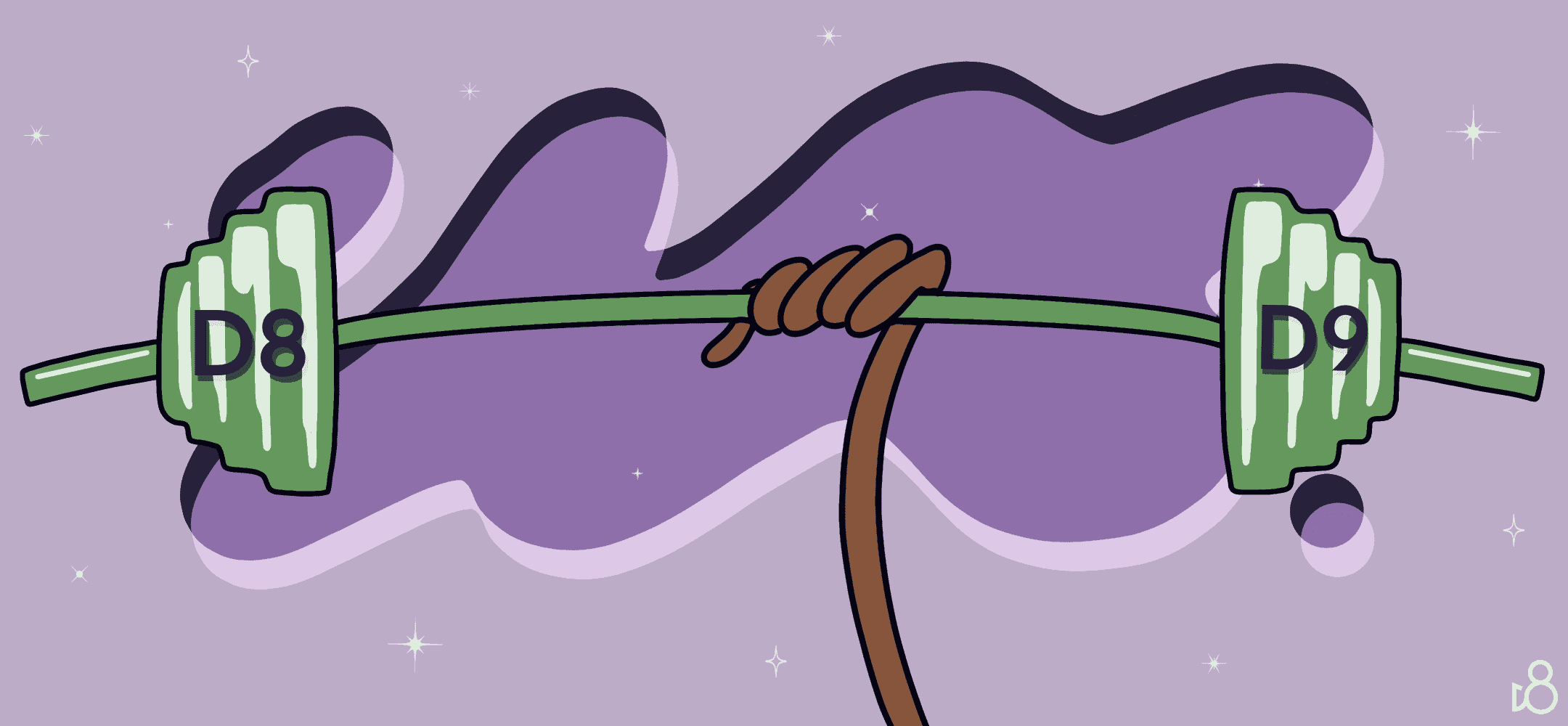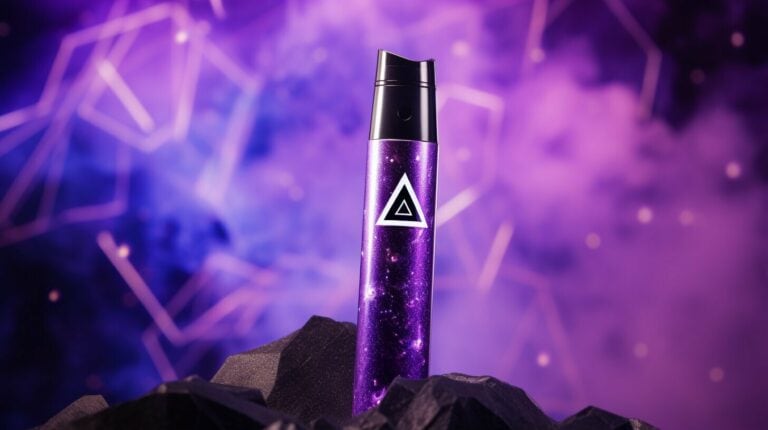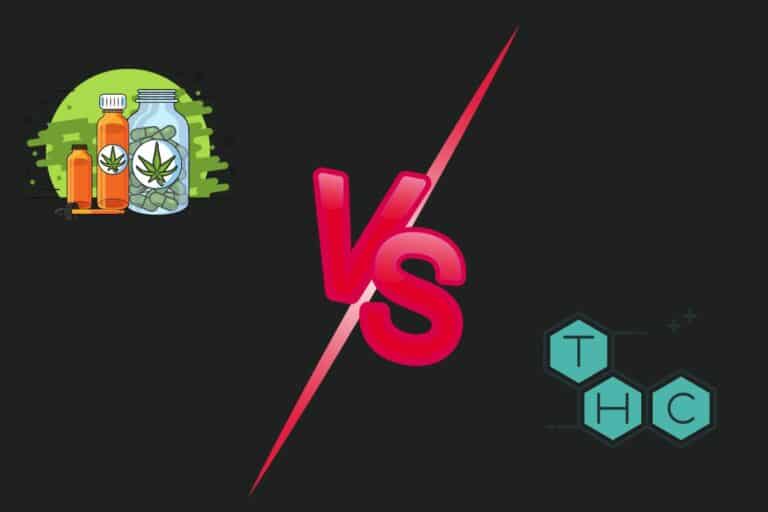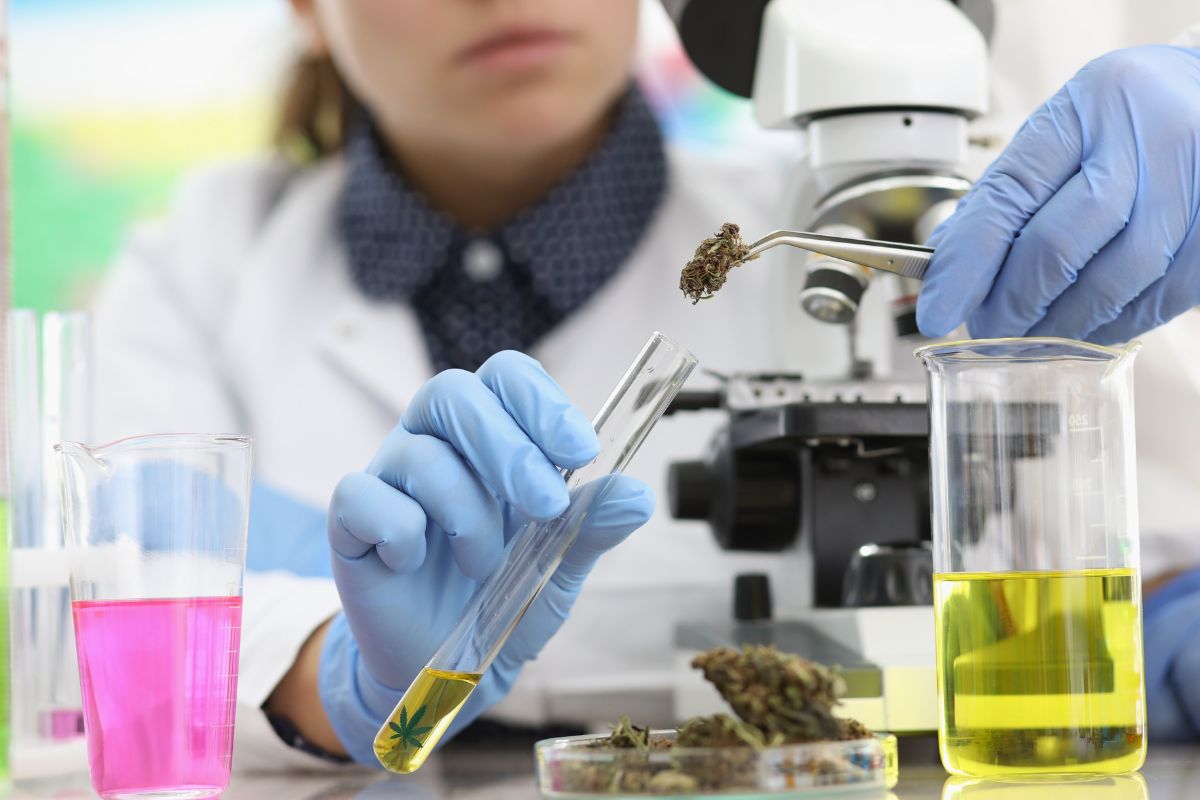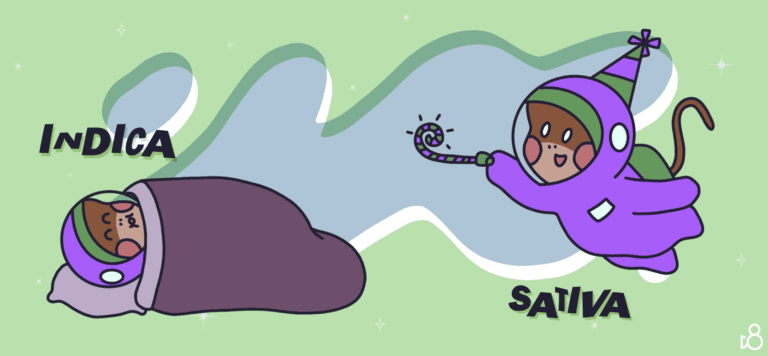Which is Stronger, Delta-8 or Delta-9? A Direct Comparison
Dive into the world of cannabinoids, and guess what, THC isn’t the only player. Who’s taking center stage? Meet delta-8-THC and delta-9-THC. Curious about what sets them apart? It’s all about a tiny tweak in their atoms. This little shift makes a big difference in how they work.
Delta-9-THC, the primary psychoactive component found in cannabis, has a reputation for its potent effects. It’s associated with the classic high that can alter perception, mood, and consciousness. On the other hand, delta-8-THC is similar but with a slightly altered chemical structure that leads to milder psychoactive experiences. You may have heard that delta-8-THC is smoother and less intense, hence its growing popularity among users seeking a lighter effect.
Table of contents
While both compounds are naturally occurring in the cannabis plant, the legal landscape surrounding them can vary. Delta-9-THC is typically more regulated due to its stronger effects and its concentration in cannabis, whereas delta-8-THC often exists in smaller quantities and has been subjected to less research to date. Understanding the strength and effects of these cannabinoids is crucial, especially when navigating through their legality and studying their impacts on the human body.
Chemical Composition of Delta-8 and Delta-9
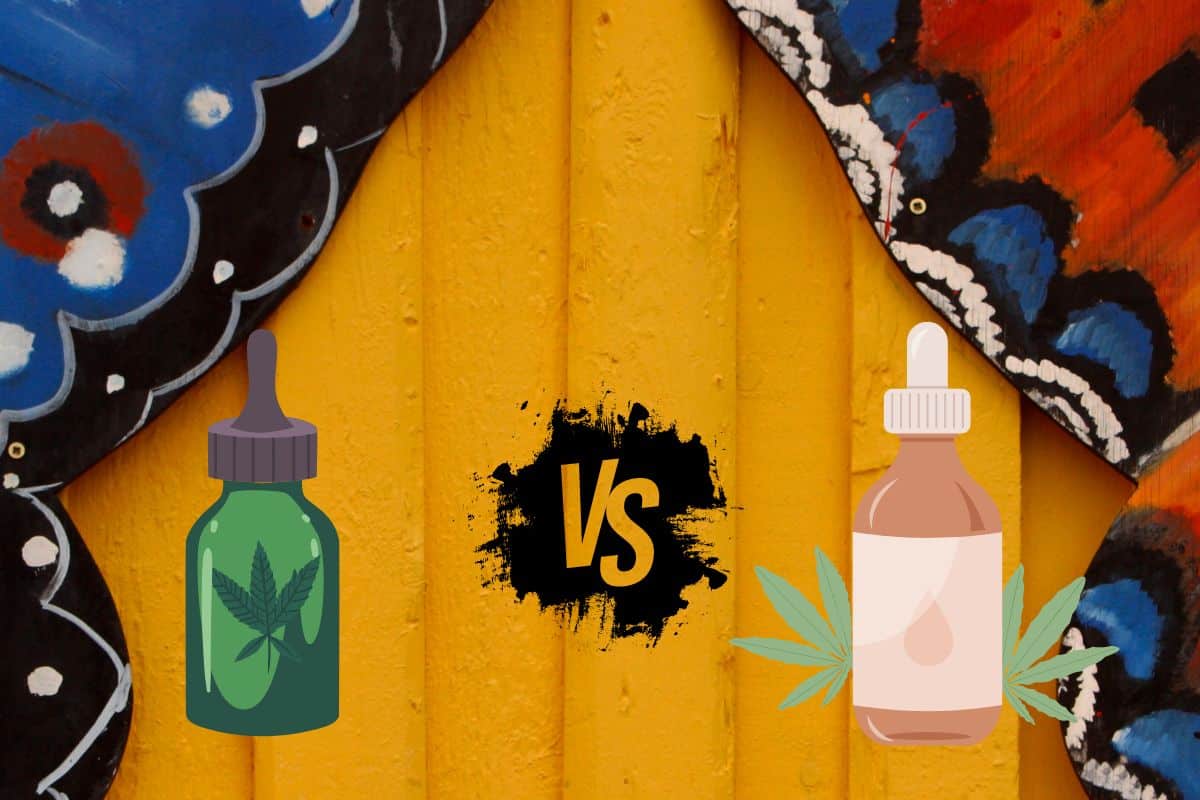
When you explore the cannabinoids Delta-8 and Delta-9 THC, you’re diving into the complex world of chemical structures that define their molecular makeup and ultimately their effects.
Cannabinoid Molecular Structure
Cannabinoids like Delta-8 and Delta-9 THC share a very similar molecular structure. Both have a chain of carbon atoms, but the difference lies in the placement of a double bond. This small variation significantly impacts how these compounds bind to the body’s cannabinoid receptors.
- Delta-8 THC: Contains a double bond on the 8th carbon chain.
- Delta-9 THC: Has this double bond on the 9th carbon chain.
The presence of these double bonds is crucial because they influence how the molecule will interact with the endocannabinoid system, affecting potency and effects on your body.
Delta-8 vs Delta-9 THC
Delta-8 THC is often described as the less potent sibling to Delta-9. Despite their similarities, the minor shift in the double bond location between Delta-8 and Delta-9 THC results in a different shape of their molecules, which in turn has a ripple effect on how strongly they interact with neural receptors.
- Potency: Due to the chemical structure, Delta-9 THC typically binds more readily and produces a stronger psychoactive effect.
- Affinity: Delta-8 may have a lower affinity for CB1 receptors, indicating a less intense impact on you.
Understanding this distinction at a molecular level helps explain why each cannabinoid might feel different when consumed, with Delta-9 being the stronger of the two.
Legality and Regulations

Understanding the legal landscape of Delta-8 and Delta-9 THC is critical for your compliance and safety. This section will clarify the complexities of their legal status, the implications of the 2018 Farm Bill, the Controlled Substance Act’s stance, and the FDA’s position on THC products.
2018 Farm Bill Overview
The 2018 Farm Bill significantly impacted the legality of hemp-derived products. It legalized hemp by removing it from the definition of marijuana in the Controlled Substances Act, providing it contained no more than 0.3% Delta-9 THC on a dry weight basis. This law inadvertently created a gray area for hemp-derived Delta-8 THC, which is not explicitly addressed in the legislation.
Controlled Substance Act
Under the Controlled Substance Act, Delta-9 THC is listed as a Schedule I controlled substance, meaning it’s considered to have a high potential for abuse with no accepted medical use. However, because the 2018 Farm Bill does not mention Delta-8, its status remains unclear. This ambiguity has allowed some to argue that Delta-8 is legal if it is derived from hemp, although this interpretation is subject to ongoing legal challenges and is not universally accepted.
FDA Stance on THC Products
The FDA asserts that all THC products, regardless of whether they are Delta-8 or Delta-9, require FDA approval before being marketed for therapeutic benefits. Due to the lack of comprehensive research, the FDA has not sanctioned the safety or effectiveness of Delta-8 products. Consequently, the sale of these products remains regulated, and manufacturers and sellers must tread carefully to ensure they are not distributing a controlled substance illegally.
Effects and Potency
When exploring the nuances of tetrahydrocannabinol, you’ll find that the potency and psychoactive effects are pivotal in distinguishing between delta-8 and delta-9. Your understanding of these compounds’ effects is essential, especially if you’re considering their use for their euphoric properties or seeking information on the varieties of cannabis plants they’re derived from.
Psychoactive Effects and Euphoria
Delta-9 THC is renowned for its intense psychoactive effects, often producing a pronounced sense of euphoria that is widely associated with cannabis consumption. In contrast, delta-8 THC is frequently described as offering a milder and more clear-headed euphoria. This subtle difference means that delta-8 might be the choice for you if you’re seeking less intense effects. Research indicates that the effects of delta-8 are about 50% as potent as those of delta-9 THC.
Cannabis Plant Varieties
The cannabis plants have a wide array of compounds, with both delta-8 and delta-9 THC being just two of them. Typically, delta-9 THC is more abundantly present in cannabis, while delta-8 is found in only minor amounts. Advances in extraction and synthesis methods have made it possible to isolate and enhance delta-8 THC from the plant, thus providing a different option to experience the potential benefits of cannabinoids.
Differences in Potency
When determining potency, delta-9 THC generally holds the upper hand. Its effects are more pronounced, and it acts as a stronger agonist of the CB1 receptors in the brain. On the other hand, delta-8 THC could be a better candidate if you’re aiming for a less intense experience, as it’s considered a less potent agonist of CB1 receptors compared to its delta-9 counterpart. Understanding this distinction is crucial in setting your expectations and achieving the experience you desire.
Medical Efficacy and Research

Research into cannabinoids like Delta-8 and Delta-9 THC continues to expand our understanding of their medical efficacy. You may find that the benefits of these compounds vary, especially when it comes to pain relief, appetite stimulation, and psychological impact.
Pain Relief and Chronic Conditions
Delta-9 THC has been widely acknowledged for its efficacy in providing pain relief and managing chronic conditions. It interacts with your body’s endocannabinoid system to potentially reduce inflammation and the sensation of pain. Conversely, Delta-8 THC, while similar in structure, is reported to have a less intense psychoactive effect, which may be beneficial for treatment without substantial side effects.
Impact on Appetite and Nausea
Your appetite and nausea can be significantly affected by THC. Delta-9 is particularly noted for its effectiveness in increasing appetite and reducing nausea, a common benefit in medical cannabis usage. On the other hand, Delta-8 also contributes to these effects but might do so with a lower risk of inducing anxiety, a potential advantage for patients with conditions like cancer or HIV/AIDS that affect appetite and digestive health.
Psychological Effects
Research into THC has shown potential benefits in managing symptoms of depression, anxiety, and post-traumatic stress disorder (PTSD). Delta-9’s potent effects on mood regulation and anxiety might be double-edged; while it can provide relief, it also poses a risk of exacerbating symptoms in some individuals. Delta-8 is reported to offer a milder and clearer sensation, suggesting a more favorable profile for managing psychological conditions without the intensity of Delta-9’s effects.
Accessibility and Consumption Methods
Knowing the different methods through which you can access Delta-8 and Delta-9 THC can aid in making informed choices about their use. These cannabinoids are available in various forms, allowing for flexibility in consumption based on personal preference and local regulations.
Tincture and Edible Forms
Delta-8 THC has gained traction as a legal alternative to Delta-9 THC, derived mainly from hemp, which can be legally cultivated under federal law. You might find Delta-8 THC in tinctures and edibles, offering a discreet and measurable method of consumption. Tinctures are administered sublingually (under the tongue), offering a direct route into the bloodstream and a controlled dosage.
On the other hand, Delta-9 THC, typically extracted from marijuana, is predominantly available in states where recreational or medicinal use is legalized. Edibles containing Delta-9 THC are a popular choice, providing long-lasting effects due to the metabolism process in your liver transforming THC into a more potent compound.
- Tinctures:
- Quick absorption when taken sublingually
- Precise dosing with the provided dropper
- Edibles:
- Discrete and portable
- Effects are long-lasting but may take longer to feel
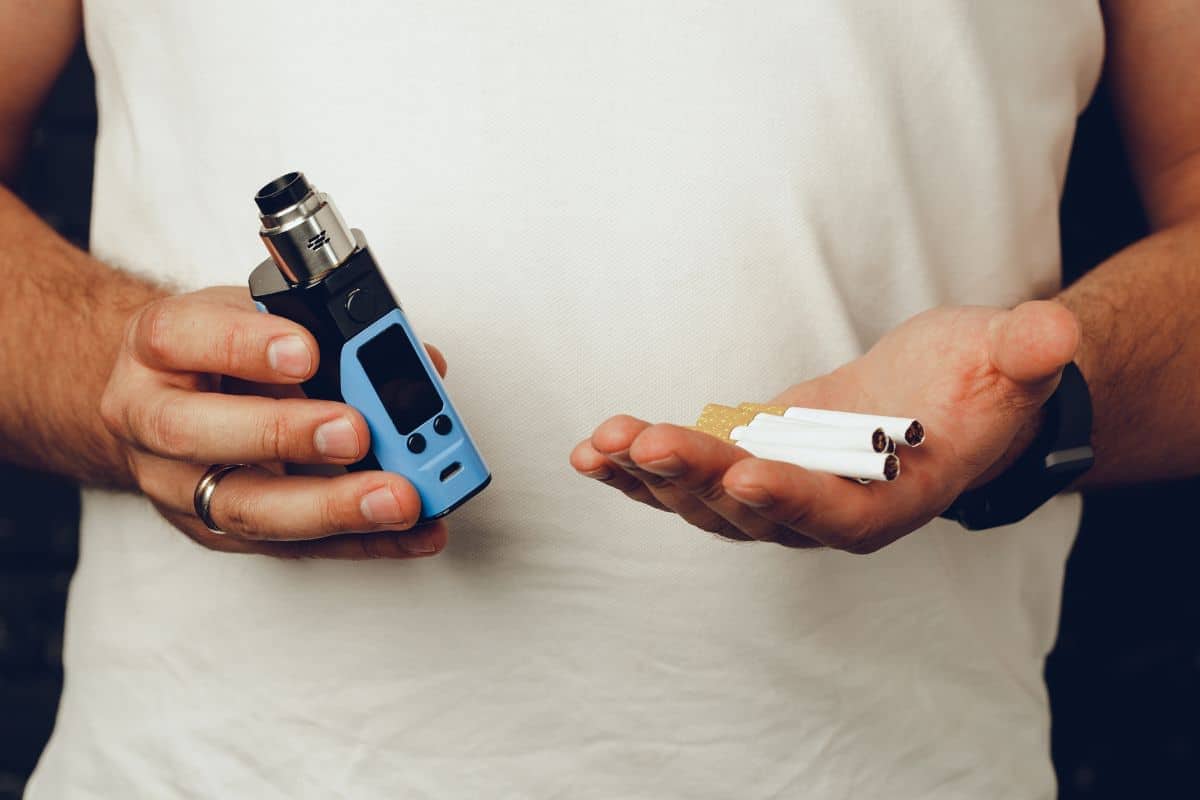
Vaping and Smoking
Vaping and smoking are common methods of consuming both Delta-8 and Delta-9 THC. Vaping Delta-8 THC allows you to experience effects rapidly, as the active ingredients are efficiently absorbed into the bloodstream through your lungs. This method can be appealing if you’re seeking immediate relief or a quick onset of effects.
Smoking, either through traditional flower or concentrates, is a staple method for consuming Delta-9 THC. Despite potential health risks associated with combustion, smoking is a straightforward way to regulate your dose by controlling how much you inhale.
- Vaping:
- Fast onset of effects
- Easier dose control compared to edibles
- Smoking:
- Immediate results
- Full spectrum of cannabis flavors and effects
Side Effects and Safety Considerations
When comparing delta-8 and delta-9 THC, it’s important for you to consider their respective side effects and safety profiles. Both cannabinoids can cause adverse reactions, albeit with some differences in intensity and duration.
Common Adverse Reactions
Delta-8 THC has been reported to produce effects that many users find less intense than those associated with delta-9 THC. However, you may still experience common side effects such as dry mouth and red eyes. Some users of delta-8 have also reported feelings of paranoia, although potentially lower in intensity compared to delta-9 THC. For more detailed user experiences with delta-8 THC, you can refer to a study discussing medical use and adverse effects.
Delta-9 THC is known for a higher potency, which correlates with a higher chance of experiencing both the desirable and adverse effects, such as paranoia or heightened anxiety.
Long-Term Risks and Tolerance
The long-term risks associated with delta-8 and delta-9 THC are not comprehensively studied, but like many substances, there’s a potential risk of developing tolerance with regular use. Building tolerance can lead to increased consumption to achieve the same effects, which may come with added safety concerns, especially if the products contain contaminants.
Regarding safety, the regulatory oversight is stronger for delta-9 THC due to its classification as a controlled substance. Delta-8 THC products may not have the same level of scrutiny and could have variations in purity or other contaminants. The FDA has issued warnings about delta-8 THC products due to concerns about harmful substances and the frequency of adverse events. It is advisable to approach these products with caution and from reputable sources to mitigate these risks.
Social Perceptions and Recreational Use
When examining the cultural and recreational aspects of cannabis, it’s important to understand the distinct positions that delta-8 and delta-9 THC hold in society. You’ll find that marijuana’s cultural impact is varied, and the specific effects sought from recreational use heavily influence user preference.
Cultural Impact of Marijuana Usage
Cannabis has long had a significant cultural impact, with its recreational use painting various social narratives. Delta-9 THC is the traditional compound associated with marijuana and is known for its strong, intoxicating high that can bring about a sense of relaxation and altered perception. While this can reduce stress for some users, others find the intensity of the high to be overwhelming. Conversely, delta-8 THC is often described as marijuana’s milder counterpart, offering a more mellow experience. This nuanced difference has cultivated a subgroup of cannabis users who advocate for delta-8 THC’s benefits, such as lessened anxiety and clearer-headedness compared to the often more potent high of delta-9 THC.
- Delta-9 THC: Strong, intoxicating, stress-relieving
- Delta-8 THC: Milder, relaxing, clear-headed
Recreational Potency and Desired Effects
From a recreational standpoint, your choice between delta-8 and delta-9 THC might revolve around the desired potency and effects. Delta-9 THC typically delivers a powerful high, often sought by those looking to experience significant psychoactive effects. In contrast, the subtler high of delta-8 THC is frequently sought for social settings where a full intoxicating experience may not be appropriate or desired. If you’re seeking an experience that is less likely to overwhelm your senses and allows for greater functionality, delta-8 THC may be your preferred choice for relaxation and stress relief without the intense high.
- Potency Preference:
- Delta-9 THC: For stronger, more potent high
- Delta-8 THC: For lighter, more functional high
Understanding the social perceptions and intricacies of recreational use can help you navigate the nuances of cannabis products. As a user, knowing how delta-8 and delta-9 THC are culturally and recreationally positioned enables you to make informed decisions about which type of experience aligns with your preferences.
Frequently Asked Questions
In this section, you’ll find specific information about the differences and comparisons between Delta-8 and Delta-9 THC, including their effects, legality, influence on sleep, and safety considerations.
What distinguishes Delta-8 from Delta-9 in terms of psychoactive effects?
Delta-8 THC is often cited as being less potent and producing a milder high compared to Delta-9 THC. This means you may experience a clearer-headed state with reduced anxiety and less intense psychoactive effects from Delta-8 THC.
Can you compare the legal status of Delta-8 and Delta-9 THC?
The legal status of Delta-8 is complex and varies by location, with some states allowing its use under specific circumstances, while others have it banned. Delta-9 THC, on the other hand, is federally illegal, though many states have legalized it for medical or recreational use. Always check your local laws regarding THC products.
How do Delta-8 and Delta-9 THC differ in their impact on sleep quality?
While research is still ongoing, some users report that Delta-8 THC can promote relaxation and aid in sleep more so than Delta-9, which may sometimes lead to anxiety and disrupt sleep in sensitive individuals. This suggests potential differences in their impact on sleep quality.
What are the safety considerations when using Delta-9 THC?
Delta-9 THC can be associated with several effects that warrant cautious use, including the potential for increased heart rate, coordination problems, dry mouth, and altered mental state. It is important to use Delta-9 products responsibly and be aware of your personal safety considerations.
In terms of strength, how does Delta-10 compare to Delta-9?
Delta-10 THC is less researched, but preliminary accounts suggest it may be less potent than Delta-9 THC. However, conclusive comparisons in terms of strength are not yet available, and users should approach all THC variants with an understanding of their potential potency.
What can users expect from the experience of consuming Delta-9 gummies?
When using Delta-9 gummies, users might anticipate a stronger and more pronounced psychoactive experience, with effects that last longer due to the digestion process. It is crucial to start with lower doses and be mindful of the delayed onset of the consumption experience.

